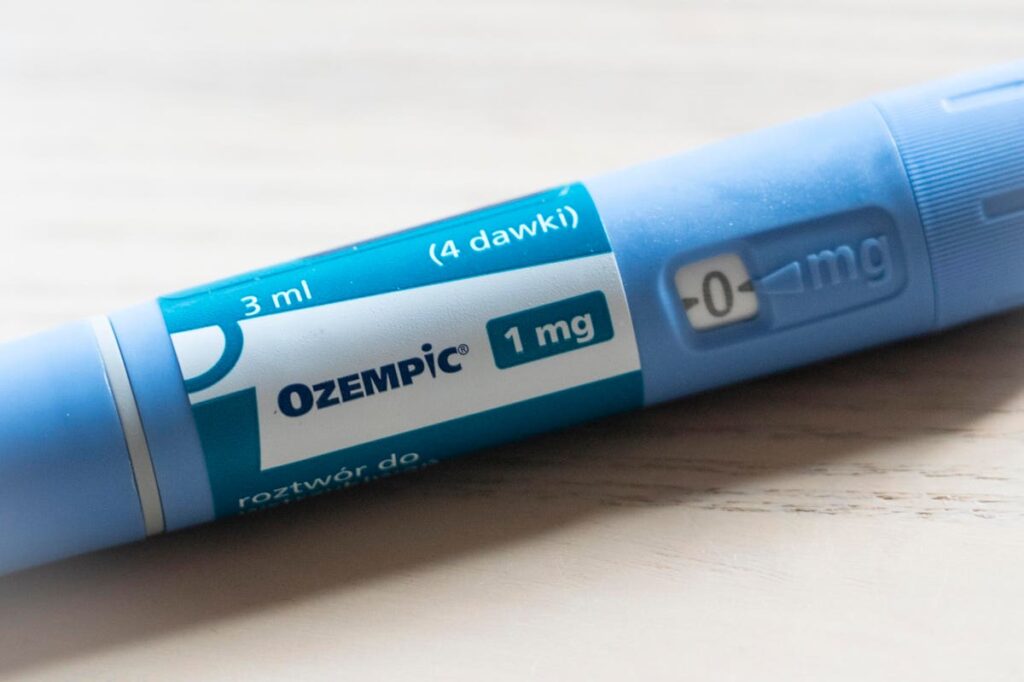An Ozempic (semaglutide) injection pen is seen on a kitchen table in Riga, Latvia on 06 August, … [+]
In July, the European Medicines Agency announced it was looking into mental health side effects associated with Ozempic, including thoughts of self-harm and suicide.
According to NPR pharmaceuticals correspondent Sydney Lupkin, the FDA Adverse Event Reporting System (FAERS) has received at least 489 reports of patients experiencing anxiety, depression or suicidal thoughts while taking drugs like Ozempic that contain the active ingredient Semaglutide.
Ozempic, a FDA drug approved for type two Diabetes but not weight loss, has gained enormous popularity, particularly on social media platforms where various celebrities have also touted using the drug. The injectable drug contains the active ingredient Semaglutide that stimulates the release of Insulin, a hormone that reduces blood sugar levels. It also delays emptying of food from the stomach keeping people full for longer periods of time and acts on hunger centers in the brain decreasing cravings for food.
Common side effects of Ozempic include nausea, vomiting, constipation and diarrhea. More serious side effects can include inflammation of the pancreas, gallbladder issues, kidney failure, worsening of vision and the development of some thyroid tumors. Anxiety, depression or suicidal ideation are not mentioned in Ozempic’s instructions for use. These mental health side effects are mentioned in Wegovy’s instructions for use, the FDA drug approved for weight loss with the same active ingredient of Semaglutide but in a higher dose than Ozempic.
So is it coincidence that those taking Ozempic could be experiencing mental health issues, or does the drug actually cause suicidal thoughts, anxiety and depression?
The hundreds of reports received by FAERS are not verified, and anyone can post on their website . Reports are also not immune to being duplicated. These reports are an important opportunity for the public to express concerns and communicate adverse effects of various drugs, but the reports themselves do not imply truth or causation of a particular side effect. In other words, the reports in FAERS do not mean that Ozempic causes suicidal thoughts, but rather they are an impetus for the FDA to further investigate if the drug is associated with or can possibly cause the unwanted side effect.
There is no doubt that Ozempic could be linked or associated with suicidal thoughts and depression, since Wegovy which is a drug with the same active ingredient has a clear association with depression. However, more research and investigation would be needed to prove this assertion.
Another possibility is that the reports filed in FAERS are pure coincidence. This means that there could be no association or relation between Ozempic and the development of mental health side effects. Those that develop feelings of anxiety and depression would have developed them by pure chance, without the biologic effect of the drug.
Another plausible scenario could be that the hundreds of reports filed in FAERS with respect to mental health side effects from Ozempic are occurring because those taking the drug have a higher likelihood of having mental health issues. Those that are already depressed at baseline may also be overweight and obese and thus take Ozempic to lose weight. The drug may exacerbate feelings of depression and anxiety that already exist within individuals at baseline.
The bottom line is that more research needs to be done by the FDA to ascertain the real association between Ozempic and mental health side effects. Currently, we do not know exactly what precisely is the cause of the reports that have been submitted to FAERS. Patients taking Ozempic must continue to be monitored by their physicians for the development of any signs and symptoms related to anxiety, depression and suicidal thoughts.


